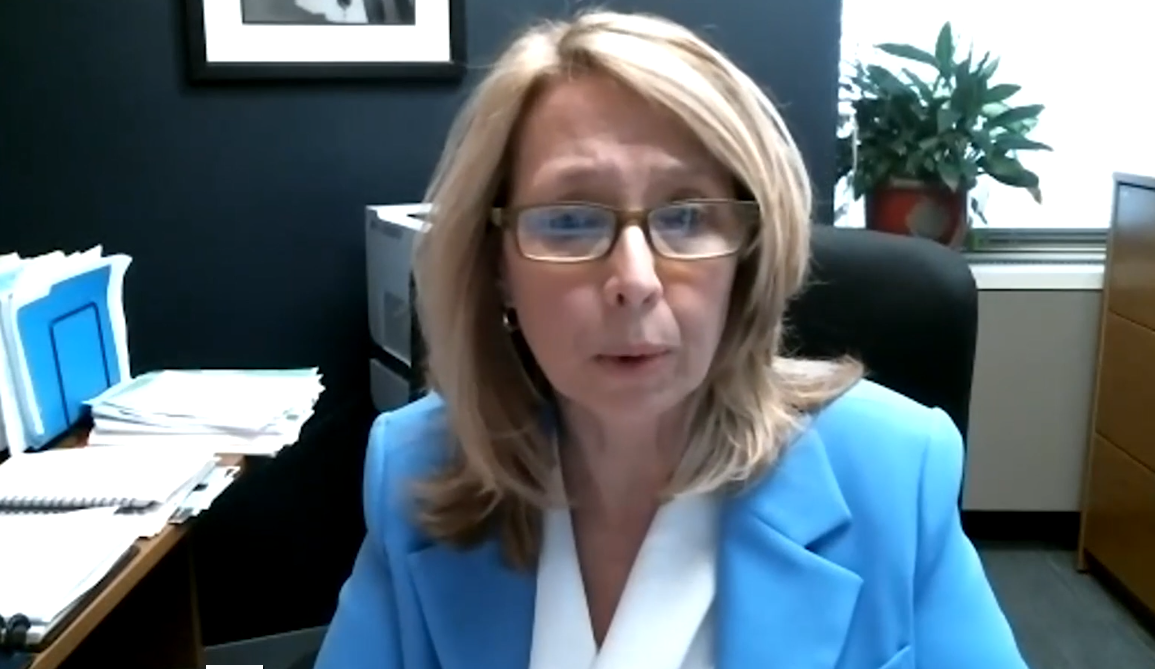This month, Beth Robinson, President and CEO of Uptown Consortium, Inc. (UCI) was invited to speak during the Clinton Foundation’s national virtual event “Affordable Housing and (Re)Building the American Dream” as part of a panel on “The Power of Homeownership: Strategies for Increasing Wealth and Building Equity.” The session focused on what organizations across the country are doing to build wealth and equity for residents in underserved communities, and how attendees could implement similar efforts in their own cities.
The panel opened with a keynote by Marty LaMar, Chief Economic Development Officer for the City of Pittsburgh, followed by a discussion moderated by Bruce Katz, Director of the Nowak Metro Finance Lab at Drexel University. Fellow panelists included Stephanie Gutierrez, Co-Founder of Hope Nation Consulting, Christie Peale, CEO of the Center for New York City Neighborhoods, and Nicole Brown, SVP National Origination Ops of Caliber Home Loans.
Increasing wealth and building equity are primary goals of UCI’s ongoing economic inclusion initiatives, including its work with WEB Ventures LLC (WEB). Over the past five years, UCI has launched a robust economic inclusion and community engagement effort throughout the Uptown neighborhoods, but especially in Avondale around the developments at Martin Luther King Drive and Reading Road.
“One of the ways we're addressing some of these issues is through a robust economic inclusion program, where we have a community benefits agreement with each developer that we work with, and we have an economic inclusion team that works with those developers,” said Robinson. “Now we have a team that helps the developers identify minority and women contractors, help them find neighborhood residents, and work with our workforce training providers to find graduates of programs for jobs.”
UCI’s economic inclusion efforts include two key elements: increasing contracting and investing opportunities for local minority- and women-owned businesses and increasing job opportunities for Uptown residents and residents of surrounding low-income communities. UCI launched this effort at the very beginning of its development planning process to ensure that inclusion would be incorporated into every phase of development and construction. But part of what makes UCI’s work so unique is that it is not limited to the construction process—UCI and its development partners are committed to inclusion goals throughout the life of the developments, from pre-construction through construction, tenant selection, staffing and annuity services.
As Robinson discussed during the panel, and as many other speakers pointed out, building wealth and equity for residents in underserved communities is critical for preventing displacement and ensuring that existing residents have economic opportunities that allow them to grow with and benefit from new development in their neighborhoods. That is UCI’s primary focus through its partnership with WEB and its community engagement work with the Avondale Development Corporation (ADC).
“What is emerging in Cincinnati really is one of the best examples of anchor procurement, supplier diversity and this deep engagement with the local community around wealth building,” said Katz. “There's a leapfrog possibility from many places around the country right now, and you've got a model that can be adapted.”
In addition to UCI’s economic inclusion efforts with WEB, UCI has helped launch and fund several initiatives specifically aimed towards increasing home ownership in Uptown, specifically Avondale, in partnership with ADC and the Uptown anchor institutions. In 2019, UCI hosted a workshop to help preserve homeownership in Avondale with ADC and several other partners throughout the city. Last year, UCI also hosted a series of financial literacy workshops with ADC focused on adult personal financial education.
ADC has taken the lead on developing a housing plan for the neighborhood as part of its Quality of Life Plan. In 2018, UCI commissioned a study of Avondale’s housing market with Dinn Focused Marketing to help guide future housing development and provided the information to ADC to inform its plan. To help increase affordable housing in the neighborhood, UCI contributed $2.08 million in NMTCs for the development of the Avondale Town Center, which now includes 69 residential units.
UCI also partners with the Uptown anchor institutions around homeownership efforts. For years, UCI has worked with Cincinnati Children’s Hospital Medical Center on its popular Avondale Home Improvement Program (AHIP), which provides interest-free home improvement loans up to $35,000. The loans are designed to help homeowners improve living conditions by fixing critical exterior home repairs that often contribute to safety and health concerns. If recipients stay in their homes for more than five years, the loan is forgiven.
Each of the other panelists spoke about the challenges in their cities and how their organizations are working to address specific issues while acknowledging that every city likely requires a personalized approach to its unique challenges and opportunities. But each panelist shared interesting insights into the many possible approaches to wealth and equity building in underserved communities that could be adapted for different areas.
UCI has received several local, regional and national awards for its economic inclusion efforts, including the 2020 International Economic Development Council’s Excellence in Economic Development Awards Gold Economic Equity and Inclusion Award, 2019 CLIMB Awards Goal Setter of the Year Award, and 2019 OEDA Excellence in Innovation Award.
To view the full panel discussion, click here.


